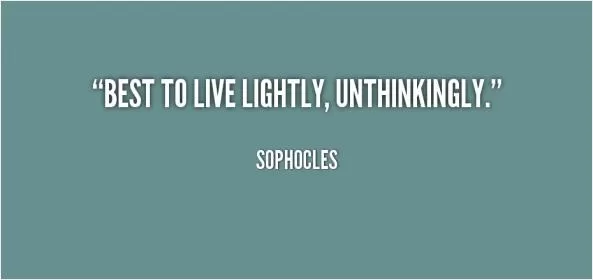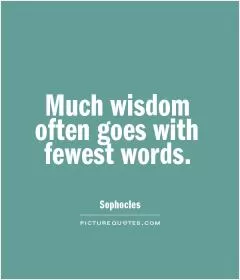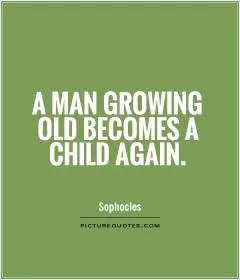Ignorant men don't know what good they hold in their hands until they've flung it away

Ignorant men don't know what good they hold in their hands until they've flung it away
In the context of Sophocles, the quote "Ignorant men don't know what good they hold in their hands until they've flung it away" holds a profound significance. Sophocles, a renowned ancient Greek playwright, often explored themes of fate, hubris, and the consequences of ignorance in his works. This quote encapsulates the tragic irony that is often present in his plays, where characters fail to recognize the value of what they have until it is too late.One of the most famous examples of this theme in Sophocles' works is found in his play "Oedipus Rex." In this tragedy, Oedipus, the king of Thebes, unknowingly fulfills a prophecy that he will kill his father and marry his mother. Throughout the play, Oedipus is determined to uncover the truth behind the plague that has befallen his city, but in his quest for knowledge, he ultimately discovers that he is the source of the curse. Oedipus blinds himself in a fit of despair and exiles himself from Thebes, realizing too late the gravity of his actions and the consequences of his ignorance.
Similarly, in Sophocles' play "Antigone," the titular character defies the king's decree and buries her brother, who has been declared a traitor. Antigone's act of defiance leads to her own tragic downfall, as she is sentenced to death for her actions. The quote "Ignorant men don't know what good they hold in their hands until they've flung it away" can be applied to Antigone's situation, as she fails to recognize the value of her own life and the consequences of her actions until it is too late.
Overall, the quote "Ignorant men don't know what good they hold in their hands until they've flung it away" serves as a cautionary reminder of the dangers of ignorance and the tragic consequences that can result from failing to recognize the value of what one possesses. In the context of Sophocles' works, this quote highlights the recurring theme of tragic irony and the devastating effects of hubris and ignorance.












 Friendship Quotes
Friendship Quotes Love Quotes
Love Quotes Life Quotes
Life Quotes Funny Quotes
Funny Quotes Motivational Quotes
Motivational Quotes Inspirational Quotes
Inspirational Quotes